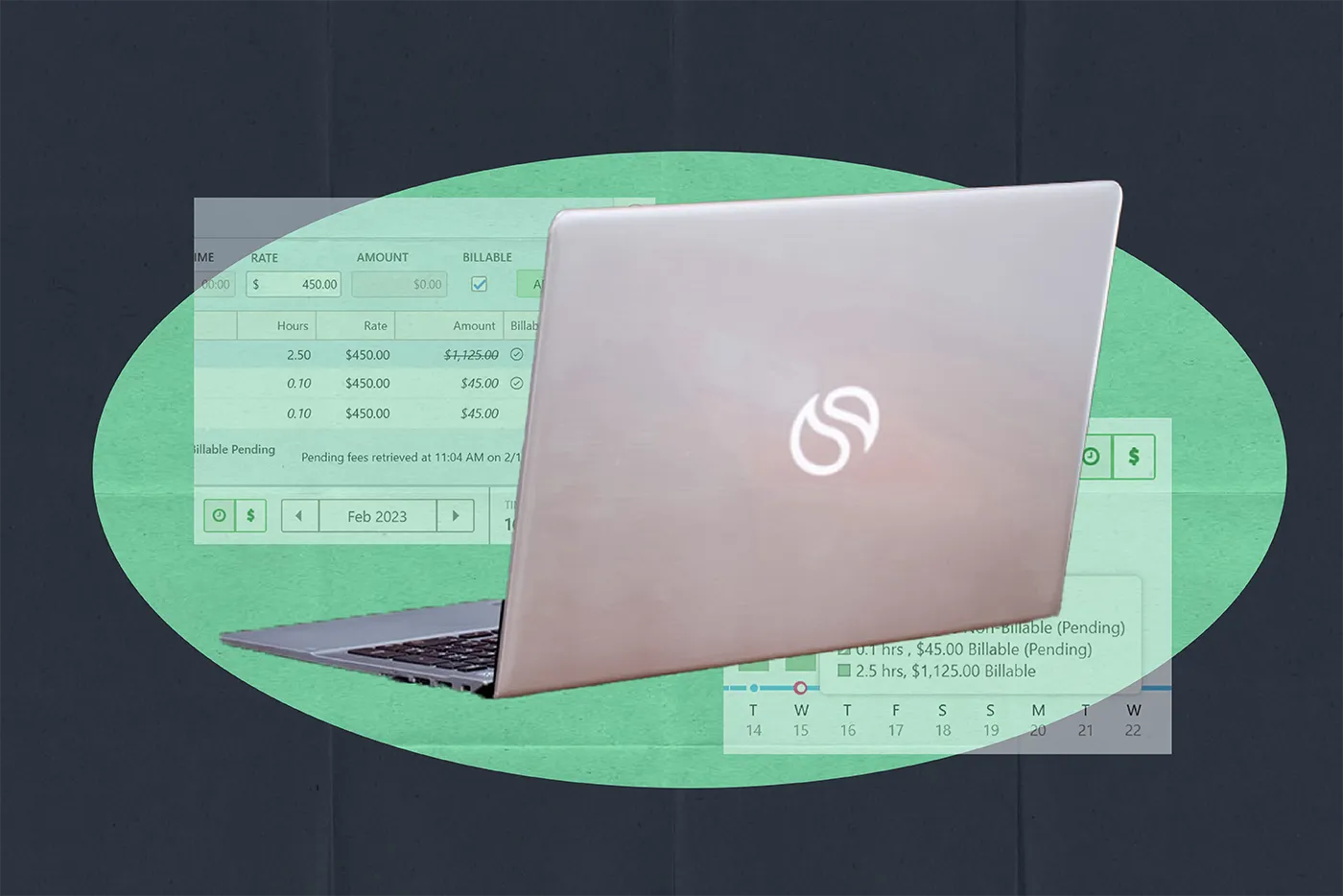Lawyer Payment Methods: What to Offer at Your Law Firm?
Written by
|
May 4, 2023
Written by Smokeball
|
May 4, 2023

Written by Jordan Turk
|
May 4, 2023

As a law firm, Is it worth it to accept credit card payments? Some businesses simply don't want to deal with processing fees and prefer to not accept credit cards - for the same reasons some restaurants remain “cash only.”
Other business owners fear the occasional fraudulent transaction claim, where a client disputes a charge and the merchant is forced to cover the amount. Some lawyers simply want to avoid potential ethical pitfalls, especially with trust accounts and fees.
While the hesitation is understandable, in wanting to hang onto every cent and avoid risk, refusing to accept credit cards and online credit card payments for invoices, can actually mean lost revenue and lost potential revenue.
If your law firm doesn’t accept credit card payments, current clients may not become repeat clients, and potential clients may avoid your law firm altogether. You may even get negative reviews from clients frustrated by your lack of payment options.
This article will explore what types of lawyer payment methods you should offer your clients - and why.
Think Beyond Cash and Checks: Make It Easy for Clients to Pay You and You'll Get Paid Faster

Today, the only businesses that can really remain successful as “cash only” are those that have low price points and high demand. Think of the family-run donut shops or pizza restaurants that have several thousand 5-star Yelp reviews that confirm it’s worth the inconvenience of going to the ATM and waiting in line for hours.
These establishments don’t care if they have to turn away a few patrons that don’t have cash. Law firms don’t have that kind of demand, and today’s law firm clients want convenience, flexibility, and security. And it is almost certain that some, if not all, of your competitors offer convenient lawyer payment methods.
If you want the largest pool of potential clients to hire your law firm, and you want faster payments from your clients, offer and accept multiple online payment methods (think ApplePay, Venmo, CashApp, and Paypal), including online credit card payments.
Some lawyers still don’t know that the American Bar Association approved credit card payments as acceptable for payment of attorney fees and legal services in 1974.
However, to this day, many law firms still refuse to accept credit cards. Instead, they tell clients to bring their checkbook to their initial consultation and insist on mailing out a paper invoice to be paid by personal check. Should paying a lawyer be the only time your client writes a check in an entire year? When they can use the credit card in their wallet to pay for everything else?
Are Law Firms Allowed to Accept Credit Cards?
It’s important to understand the rules regarding setting prices for legal services and accepting payments. Lawyers must follow codes and rules of ethics and conduct, which vary from state to state.
Some states, like Arizona, distinguish between payments of earned fees (such as invoices for billed hourly fee legal services) and deposits and advance payments received for future services (in which case the money is still client property). If the money being held still belongs to a client, the money needs to be held in a trust account.
There are important legal and ethical considerations when using trust accounts. Strict rules apply to lawyer trust accounts - particularly in regard to interest. Because lawyers are not allowed to earn interest on funds held in trust accounts, they must either set up a designated client trust account (CTA) for the client or use special accounts called IOLTA (“Interest on Lawyers' Trust Accounts.”) Essentially, IOLTA is a pooled, interest-bearing bank account, where earned interest goes to legal aid grants and nonprofit legal service organizations.
Lawyers can accept credit cards for legal services. However, not all states allow lawyers to charge or pass along credit card processing fees, which are typically between 2-5%. Florida now allows lawyers to pass along credit card processing fees, while Michigan does not. Some states allow lawyers to give discounts for paying cash, or charge a flat convenience fee to accept a credit card payment for alternative fee payment methods, even if they do not charge credit card fees.
5 Common Lawyer Payment Options to Accept at Your Law Firm
Credit/Debit Cards

Credit and debit cards are easy ways to make or receive payments online or in person. While cards look identical and have a 16-digit number, an expiration date, and a security code, the way money is transferred is different. Debit cards draw money immediately from the cardholder’s bank account, and credit cards allow cardholders to essentially borrow money up to a certain limit to pay for transactions.
Pros
Clients love paying with debit or credit cards - they are easy to use and almost instant. Veteran lawyer Claude Ducloux wrote in a 2019 ABA Journal Article that in his 40+ years of practicing law, “nothing has positively impacted my fee collections more than a combination of smart billing practices and accepting credit cards”. This sentiment is not unique.
Cons
For the convenience offered to clients, law firms have to pay a processing fee, which is a small percentage of the amount charged. All merchants accepting debit or credit cards face some risk of fraud and security issues— if a consumer later claims their card was stolen or their security was compromised. Some of these risks can be mitigated by meeting clients and checking their IDs before charging them.
e-Checks (ACH Payments)

E-checks, electronic checks, and electronic funds transfers (EFTs) are essentially digital or electronic versions of paper checks. Payments are transferred through the “Automated Clearing House” (ACH) - which is why they are sometimes called ACH payments.
Pros of ACH Payments
The fees of eChecks or ACH payments are typically smaller than credit or debit card payments. It is common for merchants to not charge any fees for accepting ACH payments (although there may be fees for insufficient funds).
Cons of ACH Payments
E-checks are typically only processed on business days and may take several days to clear. If you accept an EFT payment, the funds may not be pulled from the person’s account for several days. If they do not have funds in their account, their check may “bounce” just as a paper check would, which may incur additional fees.
PayPal

PayPal is an online payment system popular with online merchants and is often used to transfer money between family and friends. Merchants that accept PayPal can receive funds from ACH Transfer, Venmo, credit card, or debit card. Law Firms can put a PayPal button and link on their website to easily provide multiple online payment options to clients.
Pros of Paypal
Paypal is convenient and easy to use; with it, law firms can easily accept payments online, with a Paypal card reader, or with the PayPal App. It is easy to transfer money from a PayPal account to a checking account or even a debit card.
Cons of Paypal
PayPal takes a cut of all payments and charges slightly higher payments for manually keyed transactions vs “card present” transactions. PayPal may not be a solution for every lawyer. Depending on your state’s rules and what you are charging for, you may not be able to accept PayPal payments, and you may not be able to pass along processing fees.
Legal Fee Funding

On the client side, legal fee funding is very similar to a payment plan or a personal loan. However, the advantage to the law firm is simple: They receive the full amount of legal services upfront.
Pros of Legal Fee Funding
Legal fee funding can work in several ways. It can be essentially a third-party-managed buy now, pay later (BNPL) for legal services. Legal fee financing can also be a personal loan from a private lender for legal fees. For law firms, there is consistent cash flow and lowered risk of non-payments when fees are processed by a third party. The law firm receives the payment, and the splitting or payment of fees is between the client and the third-party payment processor.
Cons of Legal Fee Funding
Lawyers pay a fee for third-party financing, along with processing payments. Clients can also incur additional interest and fees if they miss a payment. If they are struggling financially and continue to miss payments, they may fall further and further into debt.
Note: For contingency fee clients, there are also reverse contingency fees - or settlement loans, where a financing company gives a “loan” contingent on a future settlement - usually where high damages are expected but a case is taking a long time to settle. These are marketed as “risk-free” because the financing company assumes the risk, and the client pays nothing if the case doesn’t settle. However, the fees for this type of financing are high.
Lawyer Payment Plans

Pros of Lawyer Payment Plans
Lawyer payment plans - or fee arrangements - are one area where you can distinguish yourself from your competition: Your law firm offers an affordable way to pay you, without financing. A major advantage of payment plans is on the client side: legal fees are broken up into more manageable amounts. A flat fee can be split up into three equal payments paid monthly, offering immediate representation for the client and making legal services affordable for clients that couldn’t otherwise afford the full amount up front.
Cons of Lawyer Payment Plans
There are increased risks of payment plans, and law firms are relying on anticipated payments that have not been received yet. What if the client dies, the client leaves town, or the client simply cannot pay? Lawyers that accept credit cards may be able to reduce the risk of default by accepting legal payments by credit card when clients do not have cash to pay.
Should Lawyers Accept Several Payment Options?
Prior to retaining a new client, you should address how you will bill them, so there are no surprises, and clients are comfortable with the anticipated fees. Lawyers should explain if clients will pay an initial retainer and be billed hourly, or if they will be charged a flat, fixed fee. Some lawyers offer alternative arrangements, such as payment plans. Payment options for clients, as well as payment methods, should be done with client convenience, and law firm profitability, equally considered.
Providing several options for payment methods makes it easier for clients to pay, gets law firms paid faster, and increases the profitability of law firms. Research has proven that law firms that do not offer multiple payment methods that include credit cards are more likely to have delays in payments and clients that don’t pay at all.
Streamline Your Billing Process with Legal Billing Software

Scroll through law firm reviews and you will notice that clients appreciate and value convenient lawyer payment methods. Paying bills with credit or debit cards saves the hassle of writing a check and mailing in a payment. When online payment solutions are offered by so many service businesses, demanding clients mail in checks or drop off cash is annoying and frustrating.
You simplify your billing and payment process. You don’t have to manage multiple payment options or complicate your billing and collections process. You can avoid mailing checks and going to the bank, and simultaneously impress your clients when you accept multiple payment methods using your legal practice management software.
Get Paid Faster with Smokeball Legal Billing Software!
Getting paid for your legal services is obviously critical to your success as a law firm.
Client-centered law firms are all about efficiency, and payments are no exception. Offering simple and easy ways for clients to pay you should be a top priority because it is mutually beneficial. Smokeball’s legal practice management software was founded by tech leaders and legal professionals and delivers an efficient user experience.
Smokeball clients know that expanding beyond traditional billing methods of mailed invoices can help law firms get paid days or weeks faster. And clients will appreciate the convenience of paying a bill online vs. mailing a check.
How to Implement Lawyer Payment Plans At Your Law Firm
Read NowLearn more about Smokeball document management for law firms:
Book Your Free Demo
Ready to see how Smokeball client intake software helps you Run Your Best Firm? Schedule your free demo!


















